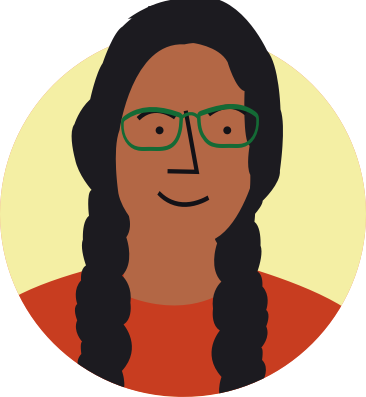
Rebeka
54, sleeping badly for 7-12 months
Despite going to bed each night feeling completely exhausted, Rebeka knew that no sooner had her head hit the pillow, her mind would begin to race. It could take her anywhere from two to three hours to fall asleep and even then, her sleep would be disturbed by nighttime wake-ups.
With work commitments necessitating a 5am wake-up time each morning, getting enough sleep at night was proving impossible for Rebeka and she was beginning each day with zero energy and no motivation to go about her daily life.
Average sleep time per night
Before Sleepstation
3h 47m
After Sleepstation
5h 54m
Having endured this daily cycle for almost a year, Rebeka was keen to find a solution to her problem sleep so she completed our simple online signup and got started with a comprehensive review of her current sleep and wellbeing.
Her first steps to rebuilding her sleep involved completing a week of sleep diaries and answering questions about any impact her poor sleep was having on both how she was feeling and her daily life.
Following this initial review week, we brought together all of the information that Rebeka had provided, to give us a baseline of her current sleep and the wider impact it was having on her life in general.
Rebeka’s sleep diaries revealed that she was asleep for only 56% of the time she spent in bed each night, meaning that her sleep efficiency was poor. This equated to an average of less than four hours of sleep per night.
Sleep efficiency
Before Sleepstation
56%
After Sleepstation
85%
She told us that her mind just couldn’t shut off at night, no matter how tired her body was. She also reported feelings of moderate depression and mild anxiety and she was experiencing a severe impairment in her ability to go about her daily life because of her poor sleep.
With a much clearer picture of Rebeka’s sleep problem and what she wanted to achieve through therapy, we personalised a multi-step sleep improvement plan for her to follow and she got started on fixing her sleep.
Through weekly therapy sessions, Rebeka was able to identify and question any unhelpful thoughts she had around sleep and build new, positive sleep associations. Rebeka particularly enjoyed having access to a wealth of sleep resources that allowed her to expand her understanding of sleep.
Before Sleepstation
- 10/27 Depression symptoms – Moderate
- 7/21 Anxiety symptoms – Mild
After Sleepstation
- 0/27 Depression symptoms – None
- 0/21 Anxiety symptoms – None
She also explored techniques to help overcome nighttime wake-ups and calm her thoughts at bedtime, appreciating being able to go at her own pace to try out different techniques and figure out which best suited her needs.
Rebeka’s made some superb improvements throughout her sleep therapy. Now she’s able to calm her racing thoughts at night, she’s able to fall asleep quickly and she’s spending a healthy 85% of her time in bed actually sleeping, which means she’s gained just shy of 15 hours of extra sleep per week!
Her mental health has improved dramatically too and she reports that her symptoms of both depression and anxiety have completely resolved. Rebeka’s no longer experiencing any impairment to her ability to go about her daily life and reports that she’s regained the energy that was so lacking before.
Impact on next day function
We use the Work and Social Adjustment Scale (WSAS) to assess how a person’s sleep problem affects them day to day. These scores are reviewed at assessment and weekly throughout therapy.
WSAS score
Before
24/40 – Severe
After
0/40 – No impairment
We’re delighted to have been able to guide and support Rebeka to retake control of her sleep. And though her therapy is now complete, the skills and knowledge she’s developed through it will enable Rebeka to keep her sleep on track.
This course has been fantastic and I feel so much more confident moving forward. I have more energy and the depth and quality of my sleep is certainly something that has improved so much. It’s had a positive impact on me, I’m so much happier, relaxed and more energised than I’ve been in a long time.
